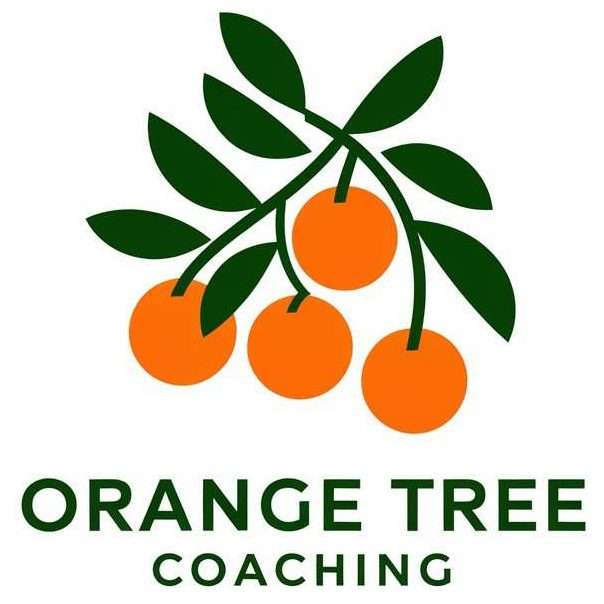Growing up in the age of social media, navigating friendships wasn’t simple – and it’s even more complex for today’s teens. As a life coach working with teenagers, I bring both professional expertise and recent personal experience to this challenge. I’ve walked in your teenager’s shoes during the rise of social media, and now I not only help teens make friends but help them build genuine connections in this increasingly digital world.

Why Teen Friendships Look Different Today
When parents ask me why making friends seems harder for today’s teenagers, I share what I’ve observed both personally and professionally. The landscape has shifted dramatically, even in the few years since I was a teen:
The Digital-Social Divide
Having grown up straddling both pre- and post-smartphone teen years, I’ve witnessed firsthand how digital connections both help and hinder real friendships. In my coaching practice, I often see teens struggling to bridge the gap between their online and offline social lives. While previous generations might have had clearer boundaries between “school friends” and “home life,” today’s teens navigate a complex web of continuous digital connection.
Post-Pandemic Social Development
Working with teens through and after the pandemic, I’ve noticed specific challenges that many adults might miss. Some of my clients missed crucial years of in-person social development during lockdowns. They’re not just dealing with typical teen social anxiety – they’re catching up on fundamental social skills that would normally develop gradually over years.
What I See in My Coaching Practice
Every week, I work with teenagers who feel isolated despite being more “connected” than ever. Here are some common patterns I’ve observed:
The Overthinking Trap
Many of my clients are bright, thoughtful teens who get stuck in their heads about social interactions. In our sessions, we often unpack how perfectionism about friendships can actually prevent them from forming natural connections.
The Digital Comfort Zone
I frequently work with teens who’ve become so comfortable with online interactions that face-to-face conversations feel overwhelmingly unpredictable. Having grown up alongside social media myself, I understand this challenge intimately and help them build bridges between digital and real-world social skills.
The Identity Search
One thing that hasn’t changed since my own teen years is the fundamental question of identity. However, today’s teens face this age-old challenge while managing multiple online personas. In my coaching, we often work on helping teens find and express their authentic selves both online and offline.
Practical Strategies to Help Your Teen Make Friends
Through my work with numerous teens, I’ve developed approaches that address modern social challenges while respecting teens’ experiences. Here’s what I’ve found most effective:
Building Social Confidence
Working with an international student recently, we developed a gradual approach to building social confidence that transformed her experience. Starting with small, manageable steps, we:
- Identified her unique interests and strengths
- Found natural opportunities for social connection
- Practiced social skills in low-pressure situations
- Gradually expanded her comfort zone
Within a few weeks, she went from feeling isolated to actively participating in school life and forming genuine friendships.
Navigating Digital Relationships
Having grown up using social media myself, I help teens use digital platforms as a bridge to real friendships, not a replacement for them. We focus on:
- Converting online interests into real-world connections
- Using digital communication to enhance rather than replace in-person relationships
- Managing social media anxiety
- Building authentic online presence
Finding Their Tribe
One of the most rewarding parts of my work is helping teens find their genuine peer group. Rather than pushing them into any social situation, we focus on:
- Identifying communities that align with their interests
- Building confidence in their unique qualities
- Creating opportunities for meaningful connections
- Developing friendship-making skills that feel natural to them
Signs Your Teen Might Benefit from Additional Support
In my practice, I’ve noticed certain patterns that suggest a teen might need extra support in building friendships:
- Showing increasing reluctance to attend school or social events
- Spending excessive time alone in their room
- Expressing feelings of disconnection despite online activity
- Showing anxiety about social interactions
- Struggling to maintain friendships once formed
The Power of Coaching for Teen Friendships
Sometimes, teens need more than parental guidance—they need a mentor who understands their world. As a 25-year-old life coach with recent experience navigating these same challenges, I offer a unique perspective for teens and young people.
Here’s How Coaching Can Help Your Teen:
- Builds confidence: Teens often feel more comfortable opening up to a coach who “gets it.”
- Provides practical tools: I equip teens with proven strategies for overcoming social anxiety and building connections.
- Creates a safe space: Coaching offers a judgment-free environment where teens can express their struggles and explore solutions.
My Approach to Supporting Teens
Based in Oxford, I work with teens both locally and globally online, offering:
- One-on-one coaching sessions tailored to each teen’s needs
- Practical strategies for building social confidence
- Support in navigating both online and offline friendships
- A safe space to explore social challenges and solutions
A Recent Success Story: Beyond Academic Achievement
One of my most inspiring transformations involved working with an international student who had just moved to the UK. She had various obstacles to overcome: adapting to a new education system, overcoming a significant mathematics gap, and navigating social connections in a new country – all while dealing with language barriers.
When we first started working together, the immediate focus was her academic performance. However, I quickly recognized that building her overall confidence would be key to both her academic and social success. We developed a comprehensive approach that included:
Academic Foundation
- Conducted detailed assessments to identify specific knowledge gaps
- Created a progressive learning plan that built confidence through achievable milestones
- Maintained regular communication with her teachers to align our approach
Social Integration
- Used academic group work as natural opportunities for social interaction
- Built confidence through small wins in both academic and social situations
- Encouraged participation in study groups, creating organic friendship opportunities
- Helped her understand UK education culture and social norms
Communication Building
- Worked on language confidence in both academic and social contexts
- Practiced casual conversation skills during our sessions
- Developed strategies for asking questions and seeking help from teachers and peers
The results were remarkable: within just a few months, she progressed from the bottom set to the top set in mathematics. More importantly, this academic success boosted her overall confidence, leading to increased participation in school activities and the development of genuine friendships. Her mother shared how her newfound confidence radiated in every aspect of her life.
This case particularly resonates with me because it demonstrates how academic and social success often intertwine – when we build confidence in one area, it naturally flows into others.
About Me
As a 25-year-old life coach based in Oxford, I bring a unique perspective to supporting teenagers through their academic and social challenges. Having recently navigated similar experiences myself, I understand firsthand the complexities of growing up in today’s digital age while managing academic pressures.
I specialize in working with teenagers who are facing various challenges, from academic stress to social anxiety. Being neurodivergent myself (with dyslexia and ADHD), I bring both personal experience and professional expertise in supporting teens who might learn or socialise differently.
My approach combines:
- Deep understanding of current teen social dynamics
- Professional coaching expertise
- Personal experience with neurodivergent learning styles
- Recent experience in both UK and international education systems
Why I Do This Work
My passion for coaching stems from understanding how crucial these teenage years are for developing confidence, social skills, and academic capabilities. I’ve seen how the right support during these formative years can transform a teen’s trajectory, not just academically but in all aspects of life.
Ready to Support Your Teen?
I offer comprehensive coaching programs for teens that include:
- 12 hours of one-to-one personalised coaching for teens
- Additional support materials and resources
- Regular progress updates and communication with
- A free 30-minute initial consultation for both parents and teens
During our initial consultation, we’ll:
- Discuss your teen’s specific challenges and goals
- Explore how my coaching approach might benefit them
- Answer any questions about the process
- Determine if we’re a good fit for working together
